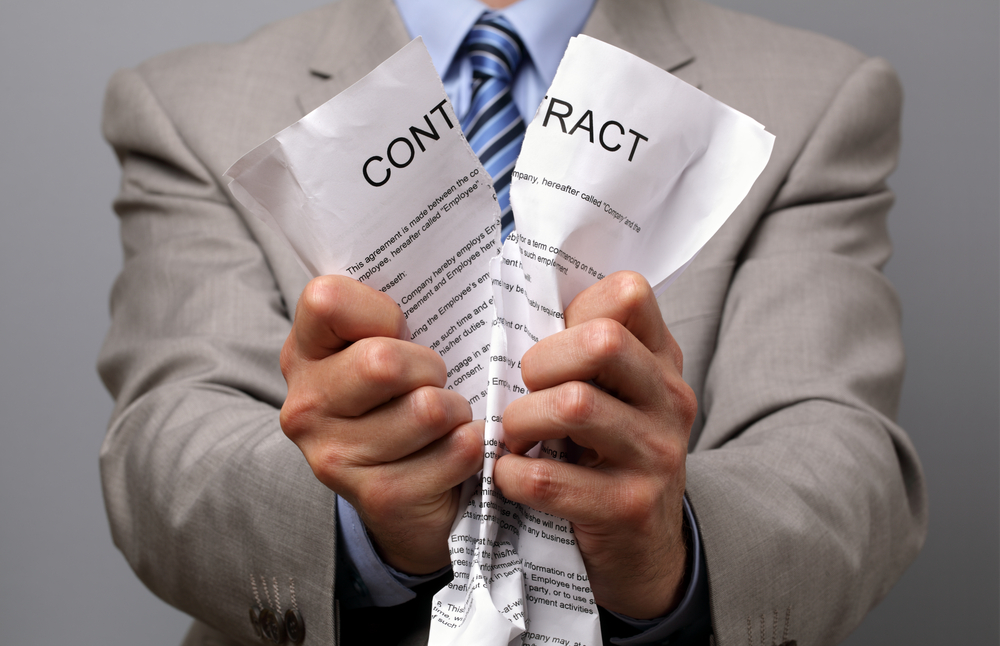Negotiating effectively over your sale price is a vital first step, but what would you do if your buyer cuts the offer later? This guide prepares you for re-negotiating to the finish, plus getting the best estate agent deal.
What is negotiation?
One definition of negotiation is ‘a discussion aimed at reaching an agreement’. Another is ‘a bargaining process between two or more parties’. In practical terms negotiation is what takes place in the gap between what someone offers you (or what you ask for) and what you end up with. What you do in that gap could be worth thousands of pounds.

Negotiation – just like a game of chess it pays to think a few moves ahead
Selling a property inevitably requires negotiation, and how skilled you are will have a direct effect on how much money you get, as well as how much you spend in fees.
Negotiation is often described as an art, but it would be more accurate to describe it as a craft – a skill that can be learnt and put to practical use.
During your property sale there are at least two main phases in which you should negotiate: the first is selecting and agreeing terms with an estate agent; the second is handling offers from potential buyers. If you are lucky and your sale goes smoothly you may have to do no further negotiation. But you may be dragged back into the process if your buyer decides to drop their offer price later on. Re-negotiation can be very challenging and stressful with high stakes so it pays to be prepared.
Negotiating with estate agents
When you decide to sell your property you are probably going to want to appoint an estate agent. Not everyone does – you can sell privately if you have a buyer lined up, but for the vast majority it makes sense to get an agent’s help with the marketing.
Traditional high street agents dominate the market, but there are several credible online estate agents that you might want to consider too. If you go with an online agent there will be little scope for negotiating over their fees as they usually charge relatively low fixed prices. If opt for a traditional agent, as most people still do, then you are likely to be quoted a commission to sell your property – typically anything from 1% to 3% plus VAT.
The estate agent is likely to quote his standard rate to you at first, hoping you will just accept it as a necessary cost of selling. What you will find is that many agents would be prepared to quote a lower fee than their standard, in order to secure your business – especially if your property seems like it will sell quickly with little work.
The higher the standard rate is the more scope you will have to negotiate it down. For example, if the agent initially quotes you 2.5% there is a reasonable chance that you will be able to hire them for 2% or possibly even 1.5%. Not all agents are willing to negotiate, but many are so it is worth assuming they will be, and having a target commission in mind that you are prepared to pay.
Make the agents compete
Estate agents use competitive tension all the time to hype up property prices. They organise sealed bids in which house hunters are encouraged to offer as much as they can possibly afford, irrespective of the property’s true value. They also arrange open days in which possible buyers are herded around at the same time in order to create a sense of demand, to drive up prices.

Create competition among agents to get the lowest commission
You can use the same principle against the estate agents themselves by inviting at least three to visit your property and provide a quotation. You shouldn’t invite all three agents at the same time – that could be ineffective and awkward – but you should make sure each agent knows that competitors are in the frame. That will make them all realise that they have to quote you their very lowest commission.
Having at least three agents visit is also useful for getting a good idea of the asking price you should be setting as each agent will provide a valuation figure.
Having sized up the agents in person you hopefully should have an idea of which of the three you would prefer to hire. Or maybe you will be happy to hire any of them, if they all seem equally professional.
One strategy for getting the agent you want at his lowest price is to identify which of the three agents is likely to offer you the lowest quotation, so you can set a low benchmark figure to take to your preferred agent.
Once you have one agent secured at, for example, 1.5% you can go to your favoured choice who has quoted 2% and say that you have decided you are going with the cheaper agent but if they would be able to beat that price by dropping to 1.25% you would be happy to go with them. If they are not prepared to go as low as 1.25% you can ask if they will match 1.5% – and suggest that if they can agree to that today then you will commit to them right now. The prospect of tying up a deal on the spot can be enough to encourage them to accept terms that they normally would reject.
This process of playing the agents off against each other can be very effective. You may happen to approach an agent at the right time when they are desperate to acquire a new property to sell, and you could get them at a great rate.
Some estate agents go as low as 0.5%, so be ambitious and persuasive and you may save yourself a few thousand pounds before the sale has even begun.
Don’t over-commit to one agent
Another important aspect of the negotiation with estate agents to consider is the period of time you are contracted to them for. Some agents will present you with a contract that ties you in for a minimum period of several weeks or months, meaning if you sell your property through anyone else during this time the agent is still due his commission.
It is obviously in the estate agent’s interests to tie you in for as long as possible, it means that once they have your property on their books, provided it sells within that time frame they will be paid, and the longer the period the less need there is for them to hurry.
If you are hoping for a quick sale you will want to have a motivated estate agent that is proactively making phone calls and sending emails from day one to the best prospective buyers, rather than waiting for the property to appear on the internet portals and sell itself.
One way to give the agent a sense of urgency is to give them a short time period in which to sell your property. If their standard terms are 12 weeks you can tell them that you are not prepared to commit to any single agent for that long, and that the most you will agree to is around four weeks. That should be enough time for them to put the property online and contact all of their registered buyers.
If they are doing a good job in generating a regular stream of viewings then you can let the contract continue beyond four weeks on a rolling basis with no notice period. If you feel they are not doing a good enough job you will be able to either switch to another agent, or to threaten to switch, which may motivate them to work harder.
Many estate agents will be willing to consider reducing their contract tie-in period in order to secure your business, as long as you give them a reasonable time frame of around four to six weeks so they have a fair chance to sell your property and cover their set-up costs, like paying to put it on the internet portals and sending a photographer.
Understanding the market value

Do online research and speak to agents to understand market value
Once you have appointed an estate agent, the process of marketing your property should start very quickly. If you have negotiated a short contract period with the agent they will be especially keen to start marketing as soon as possible.
Before you can get started, you will need to set an asking price. If you had three or more agents visit to provide valuations, you should have a fair idea of what you might be able to get for the property.
One thing to remember is that the agent cannot control the level of offers you receive, she can only make a prediction. So the agent that tells you it is worth the highest amount is not necessarily going to help you achieve that price – it could be either pure optimism, misreading of the market or a ruse to get you to sign up with them.
You will need to make your own assessment based on as much information that you can acquire from online research as well as what the agents tell your directly. Some sellers prefer to set a low figure to attract interest and generate a bidding war, others try their luck with an outrageously high figure in the hope of finding a gullible buyer.
Most sensible sellers do their homework and set an asking price fairly close to what the property is likely to achieve. If in doubt it is a good idea to price it slightly higher than you think it might sell for, to allow room for the buyer to knock a bit off so they believe that they are getting a good deal.
Knowing your market value is an integral foundation to negotiating your offers. If you firmly believe that the property should on any given day sell for a certain sum you have an excellent starting point for knowing whether to accept or reject offers when they start coming in. Of course, the offers themselves are the true determiners of the market value – but establishing that requires time for all potential buyers to see the property and make an offer. Often the process can move very quickly, especially in rising markets and in popular areas – and within days or even hours of it reaching the market offers arrive and buyers sometimes pressurise for an answer quickly.
The more you believe you really do know the value, the more confidence you will have in your decisions.
What to do about early offers
It is quite common for a property to attract interest in the first few days that it comes onto the market, especially if it is priced realistically and the market is strong at the time.
You may be tempted to accept an early offer, even if it seems a too low, because you are afraid of losing that buyer forever. So called ‘lowball’ offers should be rejected, but done politely because it is always possible that what seems like a very poor offer at the beginning, is actually the best offer you will receive and you may want to get back to that buyer to negotiate.
Another strategy that early viewers will sometimes attempt is a ‘smash and grab’ – making you a very tempting offer on the condition that you cancel all future viewings and remove the property from the internet portals.
These offers can be very appealing. The estate agent may well advise you that “the first offer is often the best” and “don’t look a gift horse in the mouth.” This advice, while sometimes valid, is sometimes poor.
A very important concept to grasp is that they are not actually giving you the money for your property today. They are offering to start the process of buying your property which may last several weeks or months depending on how quickly solicitors operate and other factors.
There is only one moment in time that the price the buyer is actually willing to pay is truly revealed and that is the point at which contracts are exchanged.
Until that moment, the offer is ‘subject to contract’ – in other words not legally binding in any way, and can be reduced or even completely withdrawn with no reason given.
The buyer’s strategy may be to reel you in with a very high offer right from the start, blow his competition away and then in a few weeks’ time when you are desperate to get on and complete the sale so you can buy your new home – he suddenly reduces the offer and you are left with a disappointing price and no back-up buyers.
In another scenario, the buyer may genuinely have got carried away and made an unaffordably high offer, perhaps encouraged by the agent or fuelled by his own enthusiasm or desperation to buy.
This is by no means the case with all early, high offers. Sometimes the buyer falls in love with the property, has the finance lined up and wants to secure it quickly with no intention of changing the price. But it is worth being aware of the risks when you accept an early offer.
Another consideration before accepting a tempting early offer is, how do you know that the market value has truly been tested?
If you accept an offer a few days after it has come onto the market, and only one or two people have viewed it, you may be preventing higher offers from coming in from even more credible buyers.
The key is to never be pressurised into accepting an offer, and test the market for as long as you reasonably can before deciding to say ‘yes’.
Test the market before accepting

Test the market by showing as many people your property as possible
The exact reaction to your property when it comes up for sale will depend greatly on the local market conditions at the time, and other factors such as the time of year (markets tend to slow down before Christmas and in mid-summer). But it is still true that at any given time there is a set number of potential buyers for properties like yours, in your area at the price level you have in mind.
To attract the best possible price, you should give as many of those people the opportunity to view and make an offer.
If your property comes onto the market on a Monday morning, a pro-active estate agent in a hot market may have viewings booked for the same day or certainly the next few days.
Should this happen to you and you get offers in this period, a sensible approach is to tell your agent to by all means invite offers but to tell potential buyers that no decision will be made until at least the following Monday.
This will give you the entire week – vitally including the coming weekend – to take viewings. The agent may tell you that you risk losing the buyer who has made an early offer if you don’t accept it. This is playing on the principle of ‘fear of loss’. The agent may be keen to tie up a deal with the minimum of work and therefore is encouraging you to gamble by accepting the early offer.
Despite the temptation and pressure, stick to your strategy. You are not rejecting the offer – you are simply not even considering any offers until at least one week has passed and a good number from your pool of potential buyers have seen it.
Is the risk of losing the early buyer genuine? Yes, there is a possibility that someone who has made a high ‘smash and grab’ offer will either reduce it or withdraw it a week later, but consider this: how sustainable was that offer in the first place?
If someone is genuinely keen to buy your property and they should be willing to wait a few days to receive an answer from you if it has just come on the market. Reasonable people will appreciate that there is a lot at stake for you and that you may not want to hurry to a decision. And if they are not reasonable, perhaps you will have problems with them further down the line, so it is better to find out now.
Waiting a few days for an answer may annoy or frustrate the person offering and the estate agent, but it is usually in your best interests to truly test the market to find a buyer that not only will offer a good price, but can follow through all the way to exchange of contracts.
This strategy only applies to very early offers. If you property has been on the market for a few weeks or months with little or no interest, of course you should get back to offers very quickly and if you get a good offer, accept it.
Which offer should you accept?

Make sure you negotiate for the best offer before agreeing a sale with a buyer
If you are in the fortunate position of having more than one offer for your property, you are in a strong position to negotiate a good price.
Ask the estate agent to get information from each person offering about their financial position and their ability to proceed. For example, if they are getting a mortgage, has it been agreed in principle by a lender (ask to see the mortgage offer letter)? Do they need to sell their property first or are they chain free? If they need to sell first, are they ‘under offer’ yet and how close are they to exchanging contracts? Buyers will often exaggerate how advanced their own sale is in order to look like good prospects, but if their sale is in the early stages, you could be waiting months for them to be ready to buy your property.
Make sure your estate agent calls the estate agent that is selling your possible buyer’s property and asks for a genuine appraisal of how advanced that sale actually is. You may not always get the exact truth but you may get a more accurate picture than the one painted by your prospective buyer.
Once you have established which offers are from credible buyers, you can focus on getting the highest price.
The simplest way is the traditional method of inviting offers, in which you keep rejecting them until one reaches a level you are happy with and that you accept.
This is something of a cat and mouse game. It is helpful for you to have a figure in mind that you would be willing to accept. But don’t reveal it too soon, even to your estate agent. If you tell your agent that you would be willing to accept a certain sum she may tell the people offering that you would take that figure and that will be the likely limit of what they will offer.
Consult your agent, but don’t rely on them
If you tell you agent that you just want the absolute best price but don’t say exactly what you think that is, you may get a competitive situation in which different potential buyers offer in excess of the sum you would have accepted and you could end up with several thousand pounds more.
If you trust your estate agent’s market knowledge and judgement about buyers, be guided by them as to how to handle offers. You may get an offer that is just a little below what you thought you would accept, but if your agent firmly believes that the buyer is at their limit of what they can afford and there are no other credible buyers offering more, you need to give it serious consideration.
Remember your property is not necessarily worth what you believe it is – it is only worth what the market determines it is. If most of the pool of potential buyers have seen it and the highest offer you have received is still lower than you originally wanted – you may have to accept that your valuation is wrong. It may be the case that the market is slowing down or your timing is wrong but whatever the reason, you may have to adjust your expectations.
Don’t be afraid – or too proud – to accept an offer lower than you originally wanted. In six months time in a falling market that offer may be considered very high and you would regret not having accepted it.
An alternative, and increasingly common method of handling multiple offers is for the estate agent to organise sealed bids in which buyers are asked to submit their ‘best and final’ offer. The buyer’s knowledge that this is their last chance to bid is thought to encourage them to go as high as they can afford in order to secure the property. This can be effective.
You may well attract bids far higher than you were expecting, and in a rising market you may have a good chance of closing the deal at that high price. But remember, just because the buyer has made that very high offer does not mean that few weeks or months later when the dust has settled and they are staring at their finances in a cold hard light, that they will be willing or able to pay that amount when it comes to exchanging contracts.
Always consider the buyer’s financial position, and know that if an offer seems too good to be true, it often is.
The perfect time to negotiate
As soon as you have accepted an offer, the terms of the deal become established and it is difficult to alter them later on without losing trust and jeopardising the deal. The time just before you accept the deal is the perfect opportunity to set out further conditions that you want to include.
For example, you can tell the agent that you will accept an offer provided they are willing to exchange contracts by a certain date otherwise you will feel at liberty to re-market the property. You may decide not to enforce this condition but setting it out at the beginning may encourage the buyer to move quickly from the start. If the offer is lower than you had hoped, and lower than the estate agent had valued it, this moment is a good time to negotate down your estate agent’s fees.
You can tell the agent that the offer is disappointing and that you will only accept it if they are willing to drop their fee by a further 0.5%. This will not always work, but for the sake of getting deal done, your estate agent may reluctantly agree and you could save yourself a few hundred or possibly a few thousand pounds depending on the price of the property.
Once you have accepted the offer, the deal is done and you will find it hard to impose further terms, so lay out your conditions while you are still holding the cards and before it is too late.
Re-negotiation – back to square one

When a buyer changes the price they are effectively tearing up the draft contract
It’s a reality that under English law there is no protection for sellers – or buyers – if the other party pulls out or changes the terms of the agreement before contracts are exchanged.
Despite the fact that you have already spent money on solicitors’ fees, if your buyer withdraws his original offer and makes a lower one which you do not want to accept, you will get no compensation.
This is even more reason to try to get the deal closed as quickly as possible at the highest price. The longer a sale process drags on the more likely it is to go wrong. There are a number of reasons why your buyer may suddenly reduce her offer. It can happen at any stage, from the first few days to the last few hours before exchange of contracts is due to take place.
Common reasons why buyers reduce offers include: the market has dropped since they offered and they no longer feel it is worth the same sum; another property has come on the market that they are interested in and yours is no longer their best or only choice; the survey has revealed serious problems which will be expensive to remedy; their financial position has altered; they have spent some of their planned deposit funds or have been unable to raise as much as they thought they could.
There is also the possibility that the buyer decides to try and get a bargain by ‘gazundering’ you – dropping the offer at the last minute when they think you will be desperate to sell at almost any price – especially if they know you are buying a new home which is dependent on your sale going through by a certain time.
Whatever the reason for the price dropping, it is critical that you do not panic or allow negative emotions like anger and frustration to take over. You must remind yourself that the earlier offer which you had thought was going to be the price was only a theoretical price. You are now facing the prospect of getting a different price – which could be lower if you end up negotiating with this buyer or potentially higher if you choose to abandon this sale and seek a better deal from a new buyer.
Your decision should be guided by what the market conditions are like today compared to what they were at the time the original offer.
Your own circumstances are important too. If you are in a chain and need to sell your property quickly in order to secure your new home it would be advisable to do some number crunching and work out what the minimum is that you can afford to sell for and still make your purchase comfortably. If your buyer’s new offer is at that level or above, you may decide for the sake of the bigger picture to accept it – but not until you have negotiated hard to get their offer back up to the maximum that you can get them to spend.
For clarity, the kind of gazundering being referred to here is not when your buyer is proposing a fairly small reduction, say a few hundred pounds to cover some repairs that the survey report has flagged up. Over these kind of small sums it is usually better just to accept them whether or not they seem legitimate to you. There is not a great deal of point in losing a deal worth hundreds of thousands of pounds in a dispute over a few hundred.
The gazundering being considered here are the huge reductions of many thousands of pounds that buyers often attempt to achieve late into a sale.
When faced with the prospect of losing such a lot of money, many sellers’ first reaction is shock, followed by anger. They may raise their voice at the estate agent or solicitor and instruct them to tell the buyer that the deal is off. Try not to do this. The first response should be to do nothing, other than to remain calm in order that whatever you decide to do is a rational response with the single goal in mind: to get the best achievable price for your property right now.
Re-appraise the market value today
Have an open minded conversation with your estate agent about the state of the local property market today, and how it compares to the time at which the offer was made. Do independent research online too.
It may be the case that your agent says the market has dropped and therefore encourages you to accept the new lower offer. A word of warning: it is possible that the estate agent might want you to go ahead because it will not greatly affect their final commission and they will want to get the deal wrapped up. You will certainly feel the financial pain more, so if this is what they tell you, don’t necessarily dispute them, but do challenge them to back up their claims.
You may in contrast discover that the market is the same as it was, or even stronger, in which case you may take the view that you should re-market the property to find a new buyer. Whether or not you want to do this will depend greatly on your own circumstances. If you are making a purchase that is dependent on a quick sale, then you may not want to lose the time required for re-marketing.
If you decide that you are too locked into your original buyer for pressure of time reasons, then commit to getting the very best price out of them.
First you need to return to the earlier question about the market value. You need to establish what a realistic selling price should be today – and don’t hold on to the earlier valuation you had when you first marketed. At this point, be grounded in today’s market conditions and potential level of buyer interest. There is nothing to be gained from thinking about what offers you received in the past.
Once you have determined what is a fair price should be now, you need to put your emotions to one side and ask the question dispassionately: is the buyer’s new offer still a good price?
If it is, then you can either choose accept it outright, or preferably to re-negotiate. To accept it may be safer in terms of not risking losing the buyer entirely, but usually it would not do any harm to attempt to re-negotiate to get them up to a higher price.
If they have offered to pay, for example, £30,000 less than their earlier offer you may decide to reject it, but offer to accept £10,000 less instead. If they reject your counter-offer the natural suggestion that the estate agent can put to the buyer is that you meet each other halfway at a £15,000 reduction.
Remember, this is all in the context of it still being a good price even with a £15,000 reduction. The buyer may either agree to settle at that compromise or to insist on a £30,000 reduction. The buyer’s stance will depend on various factors, such as how much they want your property, what their real budget is or their approach to negotiating (they may naturally enjoy bluffing or being stubborn).
There is no precise rule governing how much of a reduction you should accept, or when to pull out of a sale and look for a new buyer. The important principle is to always have a clear as possible understanding of the true market value of your property and judge every offer, whether it is the first you receive or a last minute reduction, in that context.
That way your negotiating strategy will be based on rational thinking and free from emotional knee-jerk responses. This will give you the best chance of getting a great price even amid challenging re-negotiations and a shifting property market.
Re-market, and look to the future
Ideally you will get to exchange of contracts quickly and easily without your buyer dropping the original agreed price at all.
If you do face a reduced offer, hopefully you will still be able to reach an agreement that means you can sell for a good price without further delay.
However, if you are unable to get your original buyer to offer a price that you find acceptable, you will probably want to re-market in order to find a new buyer.
This can be a stressful time. You will probably feel you have wasted several weeks or months, incurred legal expenses and possibly lost the new home that you had your heart set on buying.
All of this may be true, but the important idea to focus on is that in the property market, the stakes are so high and the process is so drawn out that what happens is never entirely within your control. But at least if you have done the basics correctly and applied a sensible approach to negotiation, you will get it right more often than not, and in the end you will have an excellent chance of selling your property for a great price.
We hope that you found this guide to negotiation helpful. If you have any comments please contact us
